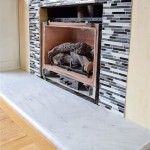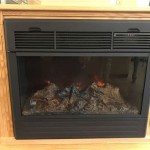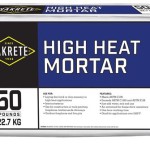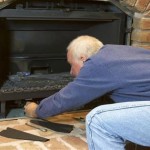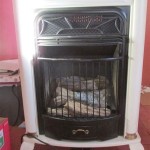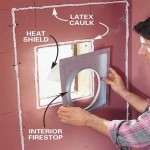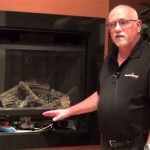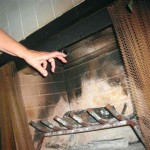Understanding Filters for Fireplace Ash Vacuum Cleaners
Maintaining a fireplace requires regular cleaning, and an ash vacuum cleaner is an indispensable tool for this purpose. However, the effectiveness and longevity of an ash vacuum cleaner heavily rely on the quality and type of its filter. Understanding the different filter types and their specific functions is crucial for selecting the right filter and ensuring the optimal performance of your ash vacuum cleaner.
Fireplace ash is a unique type of debris. It's composed of fine particles, often including soot, creosote, and partially combusted wood. These particles can easily clog standard vacuum cleaners, rendering them ineffective and potentially damaging their motors. Ash vacuum cleaners are specifically designed to handle this fine particulate matter, and their filtration systems are a key component of this design. Without a proper filter, ash can be expelled back into the air, creating a health hazard and negating the purpose of the cleaning process. Choosing the correct filter is critical for safety, efficiency, and the lifespan of the vacuum cleaner itself.
The Importance of Proper Filtration
The primary function of a filter in an ash vacuum cleaner is to trap the fine particles of ash and prevent them from being released back into the environment. Standard vacuum cleaners, designed for larger dust particles, are not equipped to handle the microscopic nature of fireplace ash. Without a specialized filter, the ash can easily pass through the vacuum's exhaust, contaminating the air and potentially causing respiratory problems.
Furthermore, ash particles, particularly those of creosote, can be abrasive. If these particles are not effectively filtered, they can damage the vacuum cleaner's motor and other internal components, leading to premature failure. A high-quality filter protects the vacuum cleaner's inner workings, extending its lifespan and saving on repair or replacement costs. It also ensures consistent suction power, allowing for efficient and thorough cleaning of the fireplace.
Proper filtration also contributes to a healthier indoor environment. Ash particles can trigger allergies and respiratory issues, especially in individuals with pre-existing conditions like asthma or allergies. By capturing these particles, a good filter minimizes their presence in the air, creating a safer and more comfortable living space.
The effectiveness of a filter is measured by its ability to capture particles of a certain size. HEPA (High-Efficiency Particulate Air) filters are considered the gold standard in filtration, capable of removing at least 99.97% of particles 0.3 microns in diameter. While not all ash vacuum cleaners use HEPA filters, understanding the micron rating of a filter is essential for evaluating its performance.
Beyond particle capture, a good filter should also be durable and easy to maintain. Some filters are washable and reusable, while others are disposable. The choice depends on the frequency of use and personal preference. However, regardless of the type, regular cleaning or replacement is necessary to maintain optimal filtration efficiency.
Types of Filters Used in Ash Vacuum Cleaners
Several types of filters are commonly used in ash vacuum cleaners, each with its advantages and disadvantages. Understanding these differences is crucial for selecting the appropriate filter for your specific needs and fireplace type.
Paper Filters: Paper filters are typically the most affordable option and are often found in entry-level ash vacuum cleaners. They are disposable and designed for single use. While they can effectively trap larger ash particles, they are less efficient at capturing finer particles like soot and creosote. Paper filters are also more prone to clogging, which can reduce suction power and shorten their lifespan. Their lower cost makes them attractive for occasional use, but they may not be the best choice for frequent cleaning or for fireplaces that produce a significant amount of fine ash.
Cloth Filters: Cloth filters offer a step up in performance and durability compared to paper filters. They are typically made of woven fabric and are designed to be washable and reusable. Cloth filters are better at capturing finer particles and are less prone to clogging than paper filters. However, they still may not be as effective as HEPA filters at capturing the smallest particles. Regular cleaning is essential to maintain their efficiency; otherwise, they can become saturated with ash and lose their filtering capacity.
HEPA Filters: HEPA filters represent the highest level of filtration available and are considered the industry standard for removing fine particles. They are composed of a dense network of fibers that effectively trap particles as small as 0.3 microns in diameter. HEPA filters are highly effective at capturing ash, soot, creosote, and other allergens, ensuring a cleaner and healthier environment. They are typically more expensive than paper or cloth filters, but their superior performance and long lifespan make them a worthwhile investment for those who frequently clean their fireplaces or have concerns about air quality. While some HEPA filters are washable, others are disposable. It is important to follow the manufacturer's instructions for cleaning or replacement.
Foam Filters: Foam filters are often used as pre-filters in conjunction with other types of filters. They are designed to capture larger debris and protect the primary filter from clogging. Foam filters are typically washable and reusable, making them a cost-effective way to extend the lifespan of the main filter. However, they are not effective at capturing fine particles and should always be used in combination with a more specialized filter.
Hybrid Filters: Some ash vacuum cleaners utilize hybrid filter systems that combine multiple types of filters to achieve optimal performance. For example, a vacuum cleaner might use a foam pre-filter to capture larger debris, followed by a cloth filter to capture mid-sized particles, and finally a HEPA filter to capture the smallest particles. This multi-layered approach provides comprehensive filtration and protects the vacuum cleaner's motor from damage.
Choosing the Right Filter for Your Needs
Selecting the appropriate filter for your ash vacuum cleaner depends on several factors, including the frequency of use, the type of ash produced by your fireplace, and your budget. Consider the following points when making your decision:
Frequency of Use: If you use your fireplace frequently, consider investing in a HEPA filter or a hybrid filter system. These filters offer superior performance and durability, ensuring consistent suction power and a longer lifespan. If you only use your fireplace occasionally, a cloth filter may be sufficient. Paper filters are best suited for very infrequent use or as a temporary solution.
Type of Ash: Different types of wood produce different types of ash. For example, hardwoods like oak and maple tend to produce finer ash than softwoods like pine. If your fireplace produces a large amount of fine ash, a HEPA filter is essential for effective cleaning. If your fireplace produces mostly larger particles, a cloth filter or even a paper filter may be adequate.
Budget: The cost of filters can vary significantly depending on the type and quality. While HEPA filters are the most expensive option, they often offer the best value in the long run due to their superior performance and longer lifespan. Consider your budget and weigh the cost against the benefits of each type of filter. Remember to factor in the cost of replacement filters when making your decision.
Maintenance: Different filters require different levels of maintenance. Paper filters are disposable and require no maintenance, while cloth and foam filters are washable and require regular cleaning. HEPA filters may be either washable or disposable, depending on the model. Consider your willingness to perform regular maintenance when choosing a filter. If you prefer a low-maintenance option, disposable filters may be the best choice. If you are willing to invest a little time in cleaning, washable filters can save you money in the long run.
Filter Compatibility: Before purchasing a filter, ensure that it is compatible with your specific ash vacuum cleaner model. Refer to your vacuum cleaner's owner's manual for recommended filter types and sizes. Using an incompatible filter can damage your vacuum cleaner or reduce its performance.
Consider Pre-Filters: Utilizing a pre-filter, such as a foam filter, can significantly extend the life of your primary filter. This is particularly useful when dealing with larger debris or when cleaning up after burning wood that produces a lot of embers.
In conclusion, selecting the right filter for your ash vacuum cleaner is essential for maintaining its performance, protecting your health, and ensuring a clean and safe environment. By understanding the different types of filters available and considering your specific needs, you can make an informed decision and choose the filter that is best suited for your fireplace and cleaning habits.

Ash Vacuum Cleaner Filter For Fireplace Bbq China And Made In Com

Ash Vacuum Cleaner Hepa Filters Pellet Wood Woodchimney Com

Daewoo 6l Fireplace Ash Vacuum Cleaner With Hepa Filter 600w Floorcare From Electricals

Ash Vacuum Cleaner Hepa Filters Pellet Wood Friendlyfires Ca

Fireplace Ash Vacuum Cleaner 1200w Capacity 15l With Hepa Filter 30x29 Cm Cinder Cleaners Crazymarket Gr

Ridgid Dry Vac Filter Kit With Replacement Pick Up Only Hepa Material And Cloth Filters For Ash Vacuum Dv0510 Vf1500 The Home Depot

Us Stove 6 5 Gal 2 Hp Ash Vacuum Av15e The Home Depot

How To Clean Fireplaces And Stoves With An Ash Vacuum Cleaner

Looking For A Ash Vacuum Cleaner 1600w With 20l Tank Vonroc

Ash Vacuum Cleaner Beper
Related Posts

